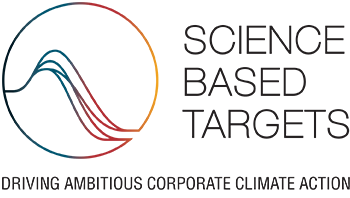Furukawa Electric obtains SBT WB2℃ certification for greenhouse gas emissions reduction targets
- Raising the greenhouse gas emissions reduction targets with the aim of becoming carbon neutral in 2050 -
- Obtained WB2℃ certification from the global environmental initiative SBTi
- With the aim of becoming carbon neutral in 2050, raised the 2030 greenhouse gas emissions reduction target to 46% compared to 2017
- Continuing to promote ESG management in order to contribute to achieving the SDGs and realize Furukawa Electric Group Vision 2030
Furukawa Electric Co., Ltd. (Head Office: 2-6-4 Otemachi, Chiyoda-ku, Tokyo; President: Keiichi Kobayashi) obtained SBT WB2℃ (well-below 2℃, (note)) certification from SBTi (Science Based Targets Initiative) for the company’s greenhouse gas (GHG) emissions reduction targets.
Background
Furukawa Electric Group is working to strengthen ESG management with the aim of increasing medium to long-term corporate value centered on ESG (Environment, Social, corporate Governance) in order to contribute to achieving the Sustainable Development Goals (SDGs) and realize Furukawa Electric Group Vision 2030 (hereinafter “Vision 2030”). In March 2021, we set forth Furukawa Electric Group Environmental Vision 2050 and declared our intention to achieve zero GHG emissions (Scope 1, 2) in 2050. In accordance with the Environmental Vision 2050, we revised the 2030 environmental targets in February 2022 and raised the GHG emissions reduction targets. Based on the new 2030 targets, we applied to SBTi for WB2℃ certification.
Details
Furukawa Electric Group has obtained WB2℃ certification from SBTi for the following GHG reduction targets.
- Reduce Scope 1 and Scope 2 GHG emissions by 46% in 2030 compared to 2017
- Reduce Scope 3 GHG emissions by 20% in 2030 compared to 2019
Scope1: Direct emissions from the use of fuel and industrial processes by the company
Scope2: Indirect emissions from the use of electricity and heat purchased by the company
Scope3: Other indirect emissions from business activities, including the value chain
Along with continuing the energy saving activities at the company’s offices and works, we will effectively utilize hydroelectric power, a power source we have used continuously for over a hundred years, and further install renewable energy such as solar power. We are aiming to eliminate GHG emissions directed at becoming carbon neutral in 2050 and are promoting initiatives throughout the value chain to achieve the 2030 environmental targets. In addition, in order to contribute to achieving the SDGs and realize Vision 2030, we will enhance the disclosure of information and increase the reliability of that information and thereby promote mutual trust with all stakeholders.
(note)WB2℃: Greenhouse gas reduction target that limits the rise in global temperatures to a level sufficiently below 2℃ compared to pre-industrial levels
SBTi (Science Based Targets Initiative)
The Science Based Targets initiative (SBTi) drives ambitious climate action in the private sector by enabling organizations to set science-based emissions reduction targets. The SBTi is a partnership between CDP, the United Nations Global Compact, World Resources Institute (WRI) and the World Wide Fund for Nature (WWF). The SBTi call to action is one of the We Mean Business Coalition commitments.
Source: SBTi

Related News Releases (Furukawa Electric’s Approaches to Climate Change and Assessments Thereof)
The greenhouse gas reduction target of the Furukawa Electric Group has been certified by the international initiative “SBTi.”
Expression of support for the recommendations of the Task Force on Climate-related Financial Disclosures (TCFD)
Formulation of the “Furukawa Electric Group Environmental Vision 2050”
Revision to Furukawa Electric Environmental Targets 2030
Furukawa Electric Group’s efforts towards the SDGs
Based on the “Sustainable Development Goals (SDGs)” adopted by the United Nations, Furukawa Electric Group has formulated the “Furukawa Electric Group Vision 2030” which sets the year 2030 as its target and is advancing efforts with the aim to “Build a sustainable world and make people’s life safe, peaceful and rewarding, Furukawa Electric Group will create solutions for the new generation of global infrastructure combining information, energy and mobility.” Toward the achievement of our Vision 2030, we will take open, agile, and innovative approaches to promote ESG management that aims to increase corporate value over the medium to long term and will contribute to the achievement of the SDGs.







 Share
Share Tweet
Tweet Share
Share